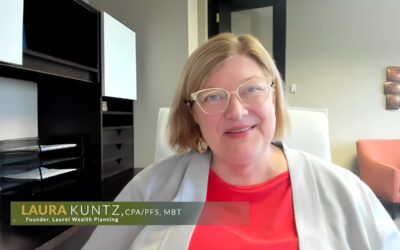A common question for people of all ages and income levels is whether they should pay off debt or invest. There is no one-size fits all answer to that question, partly because not all debt is equal. Let’s explore some factors to help you make the choice when it comes to the biggest categories of consumer debt.
First things first
First off, don’t get ahead of yourself. Before considering paying off debt or investing, make sure you have these five financial basics covered. These include having 3-6 months of expense saved, contributing to your retirement account, and paying off credit cards each month. (Credit cards are one area where the answer usually is to pay off debt first.)
It’s generally best to contribute enough to your retirement account to get a company match before looking at paying down debt. It may even be best to contribute the maximum amount to your retirement accounts before paying off debt. But if you’re already maxing out retirement contributions and are looking to either pay down debt or invest outside of your retirement accounts, read on!
Paying off debt can be thought of as a form of saving, because you are eliminating liability from your personal balance sheet. Subsequently, how you redirect the cash flow from your former monthly debt payment — investing vs. excess spending, for example — can be an important influence on your long-term goals.
It’s also important to know your tolerance for debt. What level of debt burden will weigh on your mind? This is a very personal consideration. Some people can’t sleep at night knowing that they have any debt, while others are comfortable with large debts as long as they are able to make the monthly payments. So, what is your “sleep number,” so to speak?
If the idea of debt makes you anxious, add that into the analytical considerations that follow. Your peace of mind is more important than what might look good on paper.
Pay off student loan debt or invest?
The first question to ask about student loans is whether they are federal or private loans.
Federal loans generally have lower interest rates. They also generally have more favorable terms, like more flexible payment options. It’s useful to chip away at these loans, always paying at least the minimum payment. But excess income can often be redirected to investing versus more aggressive repayment.
Private loans generally have higher interest rates and less favorable terms. Refinancing student loans from private lenders can be a way to reduce interest rates and push these loans into the same repayment priority as federal loans. If the interest rate is high, it is likely worth paying these off before looking at investing or other priorities. Currently, I would set that threshold around 4%.
The second question to ask is whether you even need to pay your loan in full.
Certain types of federal loans offer loan forgiveness programs. People who are disabled, work for a non-profit, or teach in a low-income school are among those who can qualify for these programs and have part of their loan balance written off. Be sure to explore this possibly and capitalize where you are able.
Pay off mortgage debt or invest?
Mortgages account for nearly 70% of U.S. consumer debt, so naturally many people wonder whether they should pay extra each month to clear the debt sooner.
The benefits of an early mortgage payoff are interest savings, owning a larger amount of your home’s equity, and peace of mind.
One drawback to paying off your mortgage is that more of your wealth is tied up in a non-liquid asset that can take a long time to sell.
There is also the opportunity cost, meaning what you lose out on when you aren’t doing something else with that money. There is a misguided propensity to think of personal real estate as an investment. While it is something you have invested a substantial amount of money in, it generally appreciates at a lower rate than the broader stock market. The carry cost of home ownership also often largely offsets any appreciation.
Your home is a reasonably reliable “store of value” that you may consider selling to partially fund your retirement. But, with that said, your motive to buy a home or to carry mortgage debt likely should not be “because it is an investment.” So when weighting it against investing, consider your mortgage as a debt, no different than the student loans discussed above.
A related question is whether to buy or rent. For the liquidity and appreciation reasons just mentioned, in addition to the closing costs required to buy a home, it’s often best to rent unless you plan to live in the home for at least 8 years.
Pay off car loan debt or invest?
Car loans are the third most common type of consumer debt. The math on these and other personal loans are a little more straight-forward than on student loans and mortgages. When deciding whether to pay off a personal debt — or whether to take on debt rather than paying cash — it’s all about calculating the opportunity cost.
What is the interest rate on the loan you would be taking on or paying off? What is the interest rate or yield you are likely to get on that money in an investment opportunity? Keeping or accruing debt can pay off if you make more on that money using it elsewhere. There are calculators to help you figure out the opportunity costs based on factors like the loan length and your tax rate.

Jesse bridges the gap between clients’ personal and financial goals, with focus and energy.



